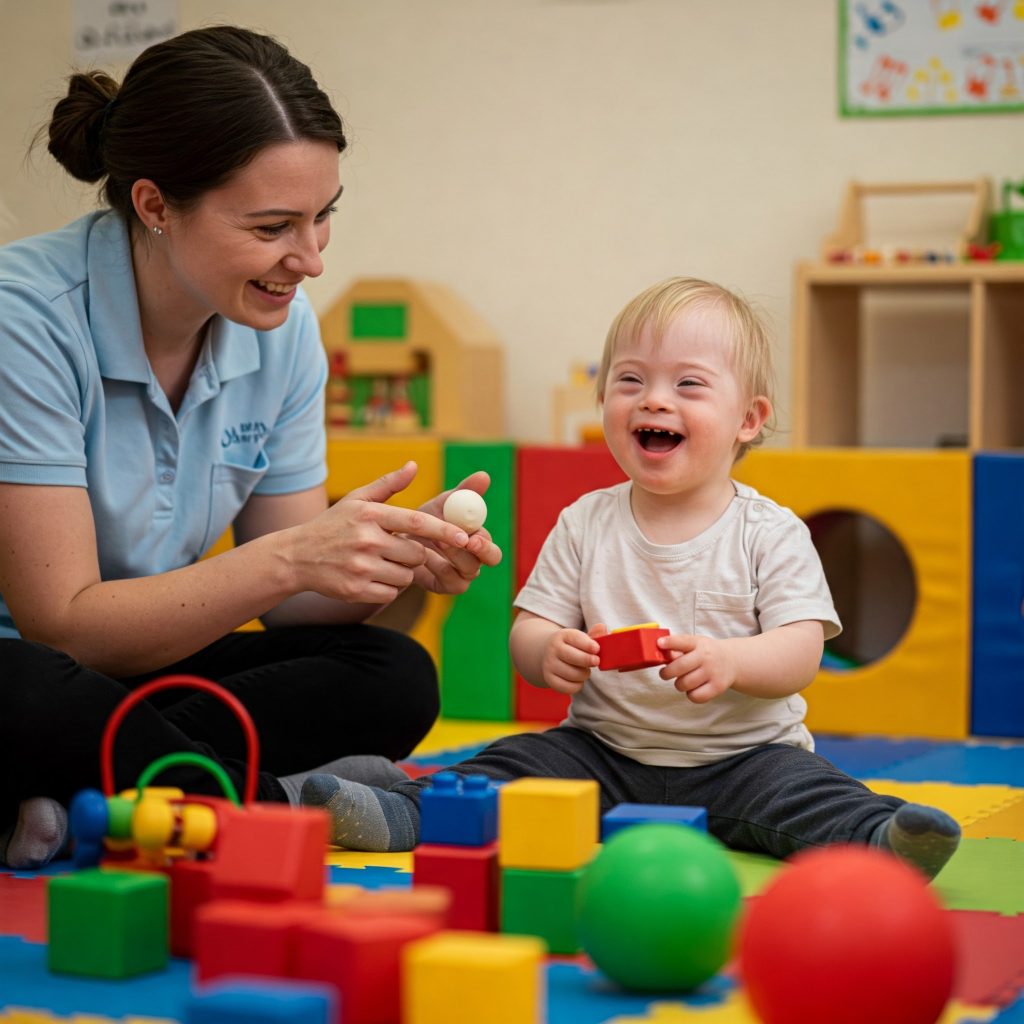Early intervention plays a crucial role in supporting children with disabilities by enhancing their development, improving long-term outcomes, and empowering families. It involves providing specialized support and services as early as possible to address developmental delays and disabilities. Research shows that early intervention can significantly improve a child’s cognitive, social, and emotional growth, setting a strong foundation for future learning and independence. In this article, we explore the benefits, key components, and strategies of early intervention for children with disabilities.
What is Early Intervention?
Early intervention refers to a range of services and support provided to infants and young children with developmental delays or disabilities. These services can include speech therapy, physical therapy, occupational therapy, and special education programs. The goal is to support children in reaching their full potential by addressing developmental challenges early in life.
Why Early Intervention Matters
Early intervention is critical for children with disabilities for several reasons:
- Enhances Brain Development
The early years of a child’s life are a period of rapid brain growth and neural development. Early intervention takes advantage of this plasticity, helping children build essential skills in communication, mobility, and social interaction. Studies indicate that children who receive early support have better cognitive and language skills compared to those who do not.
- Improves Social and Emotional Skills
Children with disabilities often face challenges in social interactions and emotional regulation. Early intervention programs provide structured environments where children learn to engage with peers, express emotions appropriately, and develop confidence in their abilities.
- Increases Independence and Quality of Life
By addressing developmental challenges early, children can develop greater independence in daily activities. Skills such as self-care, mobility, and communication can be significantly improved, leading to a better quality of life as they grow older.
- Supports Family Involvement
Families play a vital role in a child’s development. Early intervention services offer guidance and resources to parents, helping them understand their child’s needs and how to support them effectively. Parental involvement enhances learning and fosters a supportive home environment.
- Reduces Need for Special Education Services Later in Life
Investing in early intervention can reduce the need for intensive special education and support services in later years. Children who receive early therapy and support often require fewer accommodations in school, improving their academic performance and social integration.
Key Components of Early Intervention
- Developmental Screenings and Assessments
Early identification of developmental delays is the first step in intervention. Pediatricians, educators, and therapists use standardized screening tools to assess a child’s development in areas such as speech, motor skills, and social interactions.
- Individualized Family Service Plan (IFSP)
For children under the age of three, an IFSP outlines the specific services and goals tailored to the child’s needs. The plan is developed with input from parents, therapists, and educators, ensuring a holistic approach to intervention.
- Specialized Therapies
Speech Therapy: Helps children develop communication skills, improve speech clarity, and enhance language comprehension.
Physical Therapy: Supports mobility, coordination, and muscle strength, particularly for children with motor impairments.
Occupational Therapy: Focuses on developing fine motor skills, sensory processing, and self-care abilities.
Behavioral Therapy: Addresses behavioral challenges and helps children develop coping mechanisms and social skills.
- Early Childhood Education Programs
Inclusive preschools and early learning programs provide structured environments where children with disabilities can learn alongside their peers. These programs focus on cognitive, social, and emotional development while providing necessary accommodations.
- Family Training and Support
Educating parents and caregivers on how to support their child’s development is a crucial aspect of early intervention. Workshops, counseling, and community support groups provide valuable resources and emotional support to families.
Strategies for Effective Early Intervention
- Start as Early as Possible
Early intervention is most effective when started in infancy or toddlerhood. Parents should seek professional evaluations if they notice any signs of developmental delay, such as delayed speech, difficulty walking, or challenges in social interactions.
- Use a Multidisciplinary Approach
A team of professionals, including therapists, educators, and medical experts, should work together to create a comprehensive intervention plan tailored to the child’s unique needs.
- Incorporate Play-Based Learning
Children learn best through play. Incorporating interactive and engaging activities into therapy sessions helps children develop skills in a fun and natural way.
- Encourage Parent-Child Interaction
Parents should be actively involved in intervention strategies, reinforcing skills at home through daily routines, interactive games, and positive reinforcement.
- Monitor Progress and Adjust Strategies
Regular assessments help track a child’s progress and make necessary adjustments to intervention plans. Flexibility is key in ensuring continued development and improvement.
Conclusion
Early intervention is a powerful tool that can significantly enhance the lives of children with disabilities. By providing timely and tailored support, children can develop essential skills that pave the way for greater independence, academic success, and social integration. Parents, caregivers, and professionals must work together to ensure every child receives the care and support they need to thrive.

